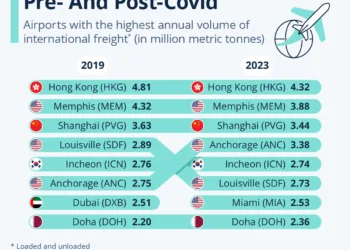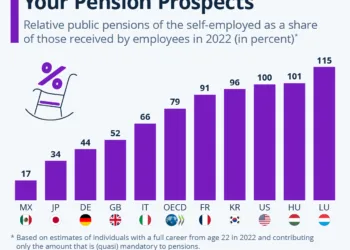The 2030 FIFA World Cup: A Controversial Decision and Its Implications
When FIFA disclosed that the 2030 World Cup would be hosted in six countries across three continents, reactions ranged from surprise to disbelief. This decision is not merely a logistical feat but also a strategic maneuver that reflects FIFA’s ongoing endeavors to maximize revenue and expand its global reach.
A Historical Context: Celebrating a Century of World Cup Football
The choice to kick off the 2030 World Cup in Argentina, Paraguay, and Uruguay is steeped in historical significance. These countries played pivotal roles in the origins of the FIFA World Cup, as Uruguay hosted the inaugural tournament in 1930. However, the symbolic gesture of honoring the tournament’s centenary contrasts sharply with the practicalities of modern international sports.
Logistical Challenges Ahead
One of the most glaring issues with this decision is the significant logistical challenge it poses for players and fans alike. The vast geographic spread of the tournament means that athletes will experience drastically different climates within a short span of time. Transitioning from the South American winter to the European and North African summer poses not only physical challenges for athletes but also has implications for their performance.
FIFA: "Following the Money"
FIFA’s latest announcement reveals more than just a celebration of history; it’s a calculated financial strategy. With its track record of controversies around corruption and financial management, this decision appears to be a savvy move to cater to profit-driven motives. By allowing the tournament to be held across continents, FIFA positions itself to capitalize on diverse markets and increase its revenue streams.
The Role of Conflicts in Confederation Rotation
FIFA’s constitution includes a principle of confederation rotation, designed to ensure equal hosting opportunities among its six regional confederations. However, this latest decision raises questions about the integrity of this principle. By involving three confederations in one World Cup, FIFA has cleverly sidestepped potential backlash regarding the 2034 tournament bidding process.
Saudi Arabia’s Ambitions and FIFA’s Strategic Maneuvering
Almost immediately after the 2030 hosting decision, the Saudi Arabian Football Federation announced its intent to bid for the 2034 World Cup. The implications here are profound; while the World Cup is historically awarded to nations based on geographical and meritorial considerations, FIFA’s recent moves signal a shift in focus toward maximizing financial inputs.
The Impact of World Cup Revenue
The financial stakes surrounding the World Cup cannot be overstated. For instance, the rights related to the 2022 Qatar World Cup yielded an impressive $6.3 billion in revenue for FIFA from 2019 to 2022, representing a staggering 83% of the organization’s total income during that timeframe. This showcases the World Cup’s significance not just as a sporting event but as a lucrative business venture.
Conclusion
The upcoming FIFA World Cup in 2030 represents a complex blend of historical nostalgia and modern-day pragmatism. As FIFA continues to navigate the intricate landscape of global sports management, the focus on profitability and international appeal remains front and center, raising critical questions about the future of football as both a sport and a business.










